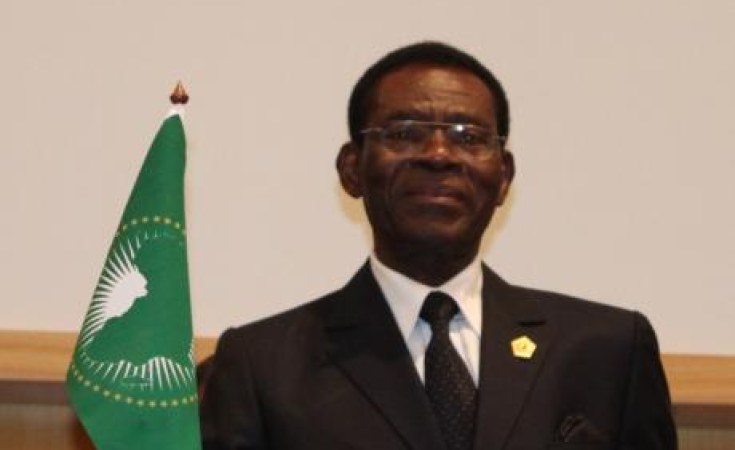Over the past year, the world has watched, with great interest, the Arab Spring dissolve decades of repression as citizens weary of injustice have stood up and demanded control of their destinies. I wish that oppressed people everywhere in Africa could benefit from the dramatic changes we are seeing in the north of our continent.
The people of Equatorial Guinea, an oil-rich country run by Africa's longest-ruling leader, Teodoro Obiang Nguema Mbasogo, have endured decades of repression, and many remain mired in poverty despite the country's considerable natural resource wealth. Torture, extrajudicial killings, arbitrary detentions, and harassment of journalists and civil society groups have been well documented by the United Nations and other sources.
Credible allegations of high-level corruption - implicating President Obiang and his eldest son - are the subject of judicial investigations in a number of countries. This while spending on education is low, even compared with other African nations less blessed with natural resources.
In February, President Obiang's government imposed a news blackout on the protests in North Africa, and later denied its own citizens the right to hold peaceful demonstrations.
Despite this abysmal record, in 2008 UNESCO agreed to establish a science prize named for and funded by President Obiang aimed at "improving the quality of human life". UNESCO suspended the prize in October 2010 after an overwhelming number of Equatoguineans, human rights groups, press freedom organizations, anti-corruption groups, public health professionals, prominent writers, and scientists from Africa and around the world voiced their outrage.
Now, less than one year later, as the 187th session of UNESCO's executive board gets under way, the organization is considering revisiting its decision to suspend the prize indefinitely.
Earlier this month, a proposal to reinstate the prize was put forward in the name of the African Union (AU), which President Obiang currently chairs. That request has been included on the UNESCO board's meeting agenda and could be considered as early as September 29.
In speeches to international audiences, including many delivered in his role as AU chair, President Obiang has stated his commitment to democracy, human rights, and good governance. Addressing the United Nations General Assembly last week, he advocated that democracy "must evolve in harmony" with a country's local culture. Unfortunately, the citizens of Equatorial Guinea have never had a free and fair election through which they could shape a democracy according to their values.
While I welcome President Obiang's decision, as part of his birthday commemorations in June, to release 22 political prisoners, his country's judiciary lacks independence and the rule of law is very weak and often violated. Just last year, the government executed four of its own citizens after kidnapping them from Benin, secretly holding them in detention without access to lawyers or their families, and denying them the right to appeal. They were even prevented from contacting family members before being executed - which happened less than an hour after the summary military trial had ended.
It is unfortunate that the time and resources expended by President Obiang to establish the prize are not directed at implementing the reforms about which he regularly talks. He should focus his efforts on remaking Equatorial Guinea into an open, rights-respecting democracy which befits our times.
Desmond Tutu is archbishop emeritus of Cape Town, South Africa, and the 1984 Nobel Peace Prize laureate.


